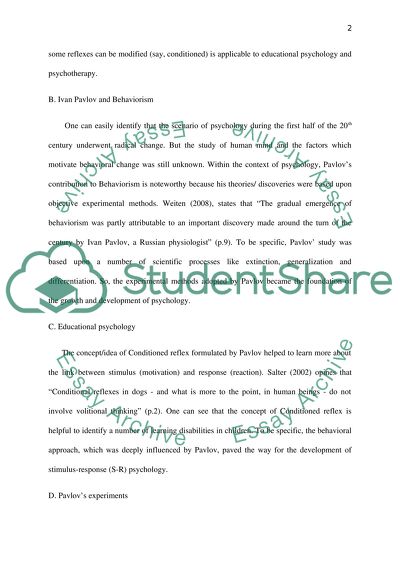Cite this document
(“Ivan Petrovich Pavlov Research Paper Example | Topics and Well Written Essays - 1250 words”, n.d.)
Retrieved from https://studentshare.org/psychology/1429909-ivan-petrovich-pavlov
Retrieved from https://studentshare.org/psychology/1429909-ivan-petrovich-pavlov
(Ivan Petrovich Pavlov Research Paper Example | Topics and Well Written Essays - 1250 Words)
https://studentshare.org/psychology/1429909-ivan-petrovich-pavlov.
https://studentshare.org/psychology/1429909-ivan-petrovich-pavlov.
“Ivan Petrovich Pavlov Research Paper Example | Topics and Well Written Essays - 1250 Words”, n.d. https://studentshare.org/psychology/1429909-ivan-petrovich-pavlov.


